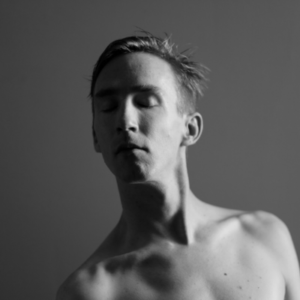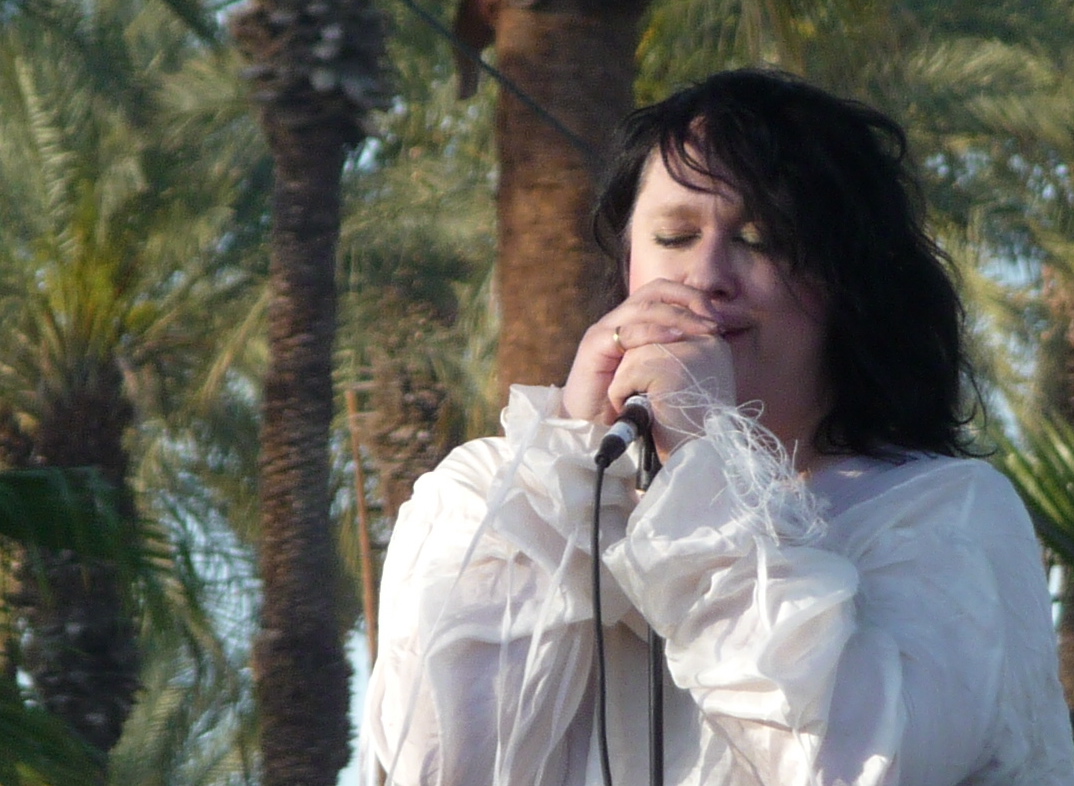 Center for New Music Executive Director Adam Fong sat down recently with cellist, composer, and arts producer Siobhán (née Karl) Cronin. This post is the second in a series following Cronin’s recording process and what it means to be transgender (read Karl’s 1st post here).
Center for New Music Executive Director Adam Fong sat down recently with cellist, composer, and arts producer Siobhán (née Karl) Cronin. This post is the second in a series following Cronin’s recording process and what it means to be transgender (read Karl’s 1st post here).
Adam Fong: What does it mean for you to be here [in San Francisco]? Why here? I assume it’s partially the geography, but I’m wondering if part of it is about your process of self-actualization and the freedom that’s afforded to you here that wouldn’t be there in other cities.
Karl Cronin: I’ve been the happiest here out of anywhere I’ve lived. Even though we [San Franciscans] have a sizeable arts sector, it’s not too commercially-minded here. This is a place that is more about life. Living. The idea that you can take a whole weekend to go on a surfing trip with your buddies is not scoffed at here. It’s actually revered. Adventure and discovery are part of the California myth. Even though San Francisco is totally a city, I feel like I live in the country. We have all this nature right around us, so I don’t have to go very far to find it.
AF: San Francisco gets to be that small town?
KC: Yes. Because of the size I don’t feel too pressured as an artist, which appeals to me.
AF: Let’s talk about your reflections on gender. I’m wondering how they relate to the artistic practice, especially regarding San Francisco and what it means to come out in San Francisco.
KC: Coming out in San Francisco has been great. It’s hard to think of any other place that has such a visible gender non-conforming population. When you walk down the streets here you see the spectrum. From the baristas, to the mail carriers, to your friends. Trans equality in the bay area is rooted in this direct knowing, as opposed to an extended categorical acceptance from afar. I came out last year while managing a non-profit in Oakland. One of our lead funders changed my prefix to “Mx.” in their files and e-mailed to tell me about it. I thought that was so incredibly kind. It was the opposite of being kicked to the curb; being forced to hide.
AF: That’s an interesting thing to me, I see a parallel there with what you’re saying about that process with what it’s like to be an artist in San Francisco because you’re not expected to be X, Y, or Z. When you’re in a hyper-commercialized market like the art market in New York, you’re expected to have your brand firmly established and it’s very clear to you and you’re not fooling around.
KC: That’s something I’ve been trying to wrap my head around. One of the most onerous parts for me about coming out has been having this thing I’ve always felt, yet being incredibly rusty at articulating it.
AF: So you have to develop the language as you go through it.
KC: Right.
AF: You’ve just described the new music problem to a T.
KC: I remember Ira Glass talking about this, about how young artists see the full culmination of their work very clearly, yet don’t have the abilities at first to make it happen, and how frustrating that can be. We build up the ability to make our work over time, through iterations, failures, learning. You’ve watched me permute my work several times over the years. I found it first in my body, then tried singing it, and now I’m finally gaining traction through my cello and composition practices. Throughout all this time I have been keenly aware of my distance from the full expression of the work. When it finally emerges, who knows, five years from now, twenty years from now, I hope we’ll be like, “we always knew Karl was trying to tell that story.”
AF: Something we talk about with music is that a lot of composers experience a time of innovation when they’re finding their voice and then it seems like it gets “fixed” because there’s some level of success or their voice is clearer. In music it happens with commercial bands as well as composers, we start to make fun of artists who stagnate and repeat themselves. I wonder if identity is this way, it’s a very Jungian concept about continually developing and how nothing will ever settle.
KC: I think knowing ourselves—our identities, sounds, biases, fears—knowing these things can help us hold them constant in the studio so they don’t sabotage us. Naming my layers has helped ensure I don’t get stuck. I see the danger in clinging too tightly to a belief that I’ve got it all dialed in.
I remember something that happened a few months when I was taking lessons with Alden Jenks. He brought me Luonnotar, this beautiful orchestral Sibelius piece with soprano. He said, “these are colors I think you are wanting to write with.” Looking back he was totally right, yet at the time I just kept bringing him Antony and the Johnsons tracks saying, “no, this is what I want to write.” He was very kind to me, but he couldn’t understand why I was wanting to make this lush ecology-based music, yet was just myopically studying this one pop musician. I remember being pouty, “well, you just don’t understand. You don’t know me.”

KC: Yeah, but I was just being a dumbass. I wasn’t reading my own baggage. My inability to integrate myself was clouding my ability to make sound decisions about my music.
AF: Was there something in those songs for you that was part of your process that you had to get through?
KC: It was Antony’s socio-political identity as trans, and her articulateness of her experience.
AF: I remember when we were putting a show together here, we were talking about your vocal quality and wanting to sound like Sade, and I thought that was interesting.
KC: I remember that.
AF: It’s a very different voice from what you have and there was something in there that was really important to you, but not necessarily just the voice, some identity wrapped up in there too.
KC: I see this when I’m coaching artists. This distance between what we perceive as our instrument or our technique, and what actually is. The trick is to not get stuck on “singing like Sade,” but rather teasing apart what it is about the sound that is calling to you.
AF: I think that’s really revealing when I think about performers because there’s this confusion of personal identity and stage identity. I’ve seen from when I used to work at the opera when people change voice parts, it’s a crisis for them, as much as a personal life crisis, because suddenly they’re not playing a soprano, they’re playing pants roles or something like that.
KC: What I’ve been wanting to be more articulate about is this relationship to personal identity and how investing time in getting it sorted out has really freed me up creatively. Dedicating some time to personal articulateness has allowed my art to be far more free of personal dogma and politics. My artistic creations, which are formed from me, certainly, but actually have their own life, were being shadowed by all this backlogged need to be clear with myself and others.
AF: So there’s a little bit of the way that Cage describes the ego getting in the way of the music, you feel like that was happening?
KC: Totally. I now feel I’m looking dispassionately at my work and asking good questions to move it forward. It feels like such a blessing.
AF: We look forward to hearing the music when it comes out.
KC: Yes, the CNM community will get first crack on all of it. Ya’ll are my music family!